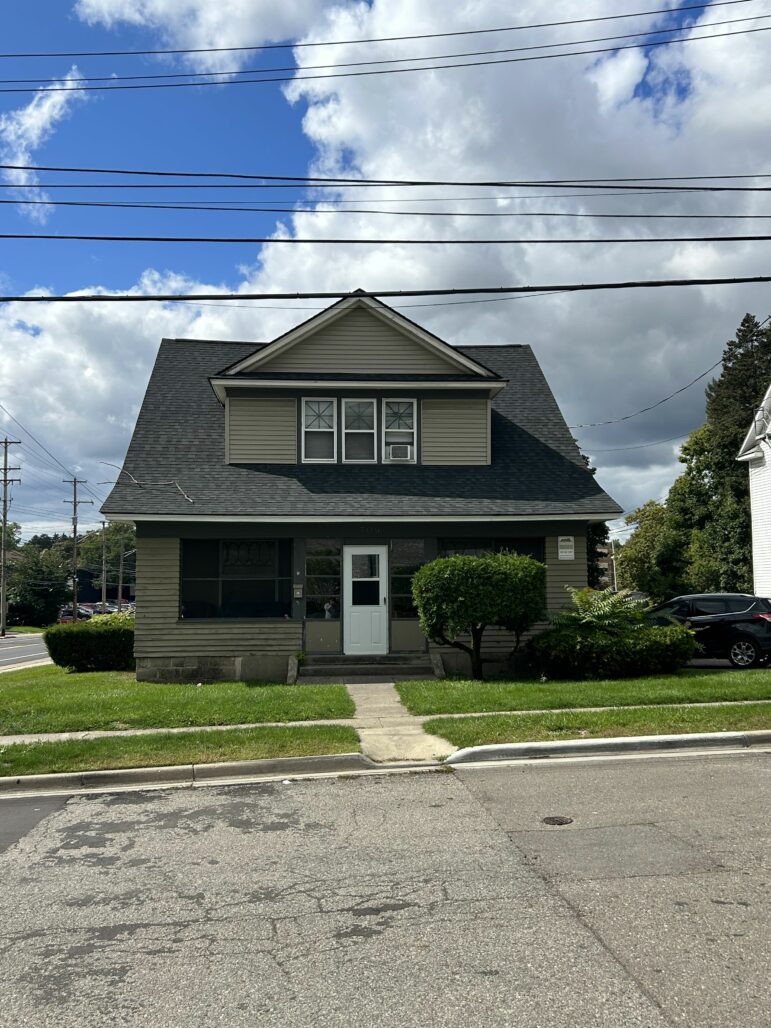On Sept. 5, dozens of East Lansing residents filled the East Lansing City Council meeting to voice their concerns regarding a local developer’s intent to purchase and rezone seven properties on Grove Street and Burcham Road.
The proposal, referred to as Ordinance 1520 in the city council’s agenda, would permit Hagan Realty, a local real estate agency, to rezone the area from a single-family district to a multiple-family district, with the developer intending to construct apartments.
However, residents of the area worry the development could reshape the neighborhood into something unrecognizable. Following public comments by residents and the developer, the city council voted to delay the final decision to Sept. 19.

Emilio Perez Ibarguen
According to Zillow, the property at 709 Grove St. was first built in 1910.Lisa Homeniuk, an East Lansing resident who lives close to the proposed rezoning, said she was worried about a demographic change the neighborhood could experience due to the development. She argued that a shift from primarily families to potentially more MSU students would be detrimental to the neighborhood.
“We have two families on our block that have young children now,” Homeniuk said. “I’m certain they didn’t come into the neighborhood thinking that there was going to be more density.”
However, Matt Hagan, an agent for Hagan Realty, said that the company actually has little control over who ultimately decides to live in the apartments. He added that, according to East Lansing laws, the company cannot discriminate against tenants due to their student status.
“It’s always frustrating for us, to be honest with you, when we do our projects and developments that that is such a topic that’s brought up,” Hagan said. “It really should not be a criteria that they are basing their decision (on).”
Additionally, Hagan said that the apartment-style buildings constructed on the site would actually be less conducive to rowdy behavior associated with student tenants.
“Typically, the single-family homes with yards and some of that (are) where more of the noise comes from,” Hagan said. “Whereas, from our experience dealing with town-home style houses and apartments, we have a lot less noise and partying going on.”
Residents of the area also argued at the council meeting that the development would mean demolishing homes that contribute significantly to the architectural heritage of the neighborhood. During the meeting, it was mentioned that the property at 709 Grove St. was constructed in 1910.

Courtesy of the City of East Lansing
Map provided to the city council by Hagan Realty. The neighborhood is bordered by the East Lansing Public Library to the north and East Lansing High School to the east.“It’s history,” Homeniuk said. “We as a nation, let alone East Lansing, knock things down once they get a little disrepaired. Well, if you had kept them up to begin with, they wouldn’t have gotten that way.”
Despite the concerns of residents, Hagan said that the interests of the entire community must be taken into consideration, not just those of people in the immediate vicinity.
“You can’t just look at ‘well these seven or eight residents who live in the vicinity are against it so it’s not good for the city,’” Hagan said. “The city also has to be viewed as a whole and the (entire) tax base.”
At the conclusion of public comments at the meeting, Councilmember Dana Watson said she hoped that all members of the community and their interests would be addressed. She added that earlier that same day she had been at the Michigan State Capitol for the “Rent Is Too Damn High,” protest.
“It is important that we take into consideration all people this would impact,” Watson said. “I’m curious where the renters are and where they would stand with this.”